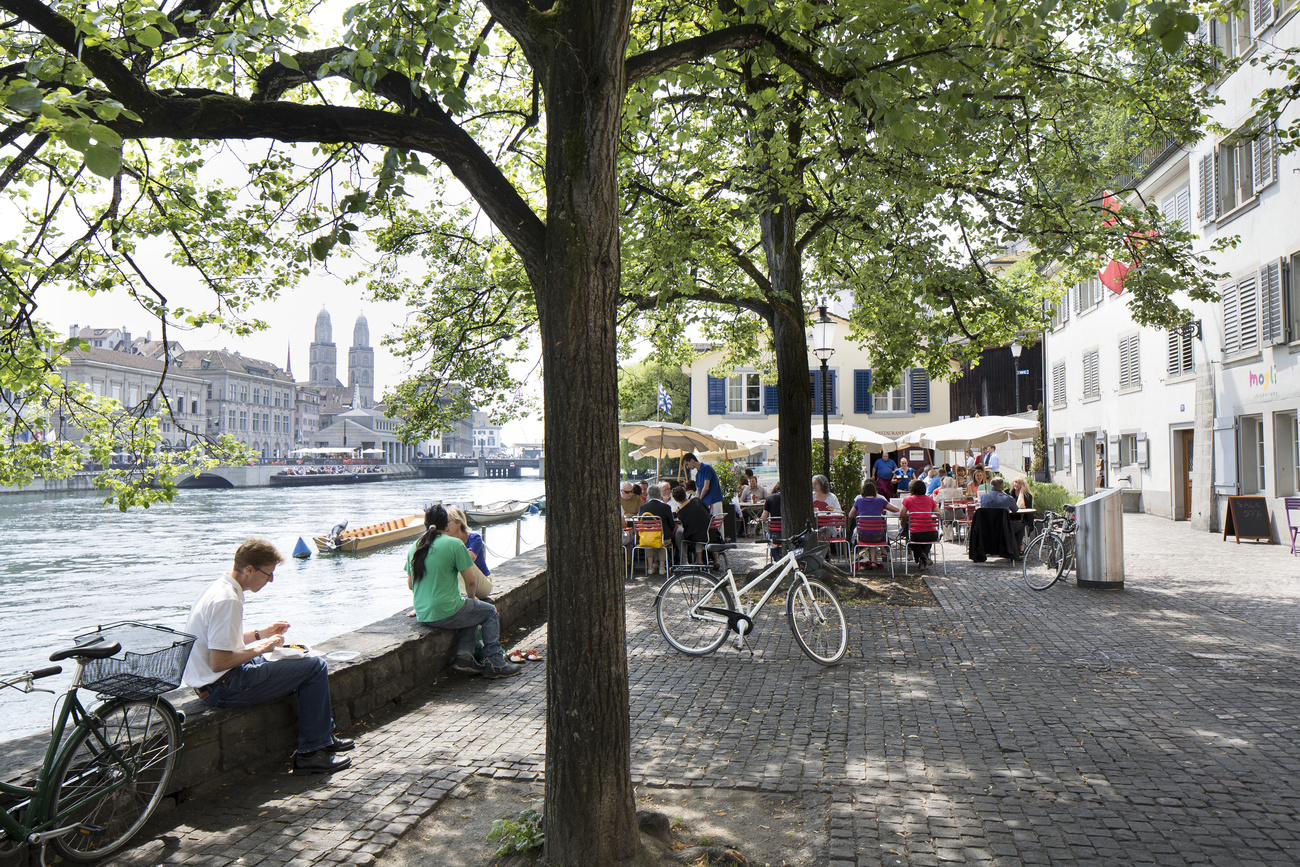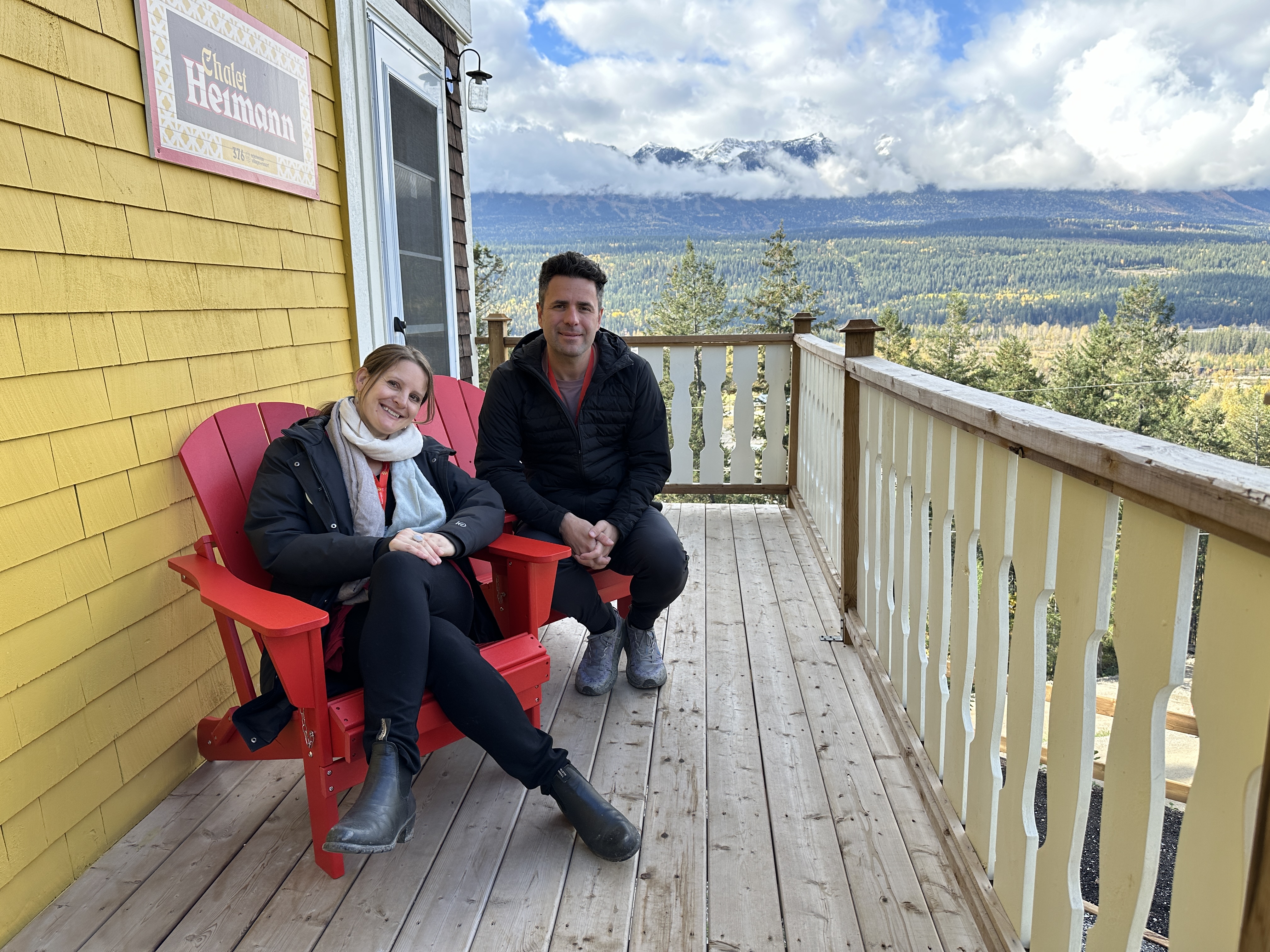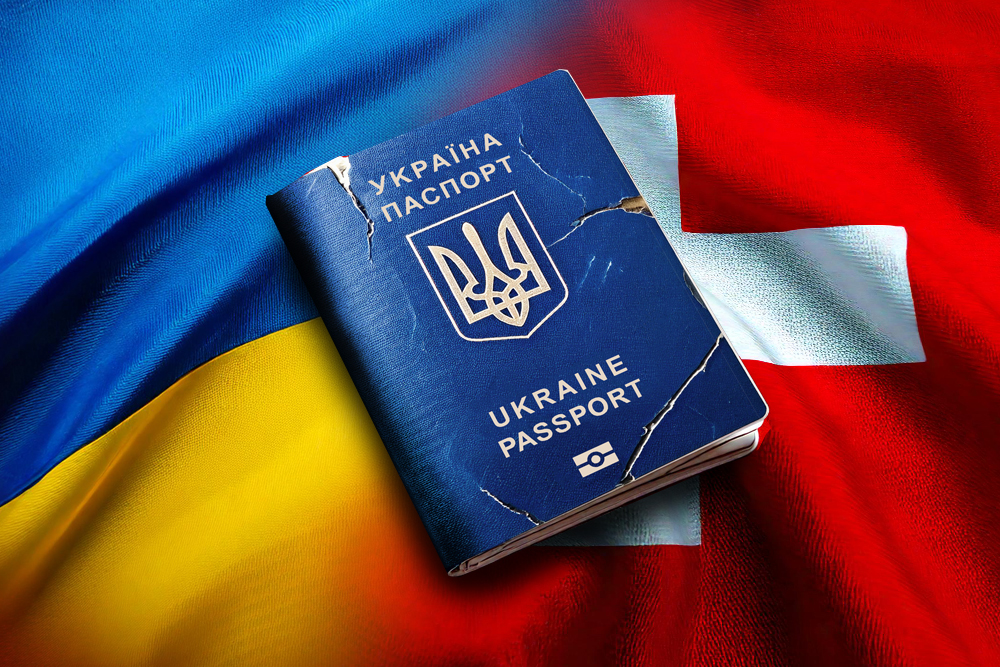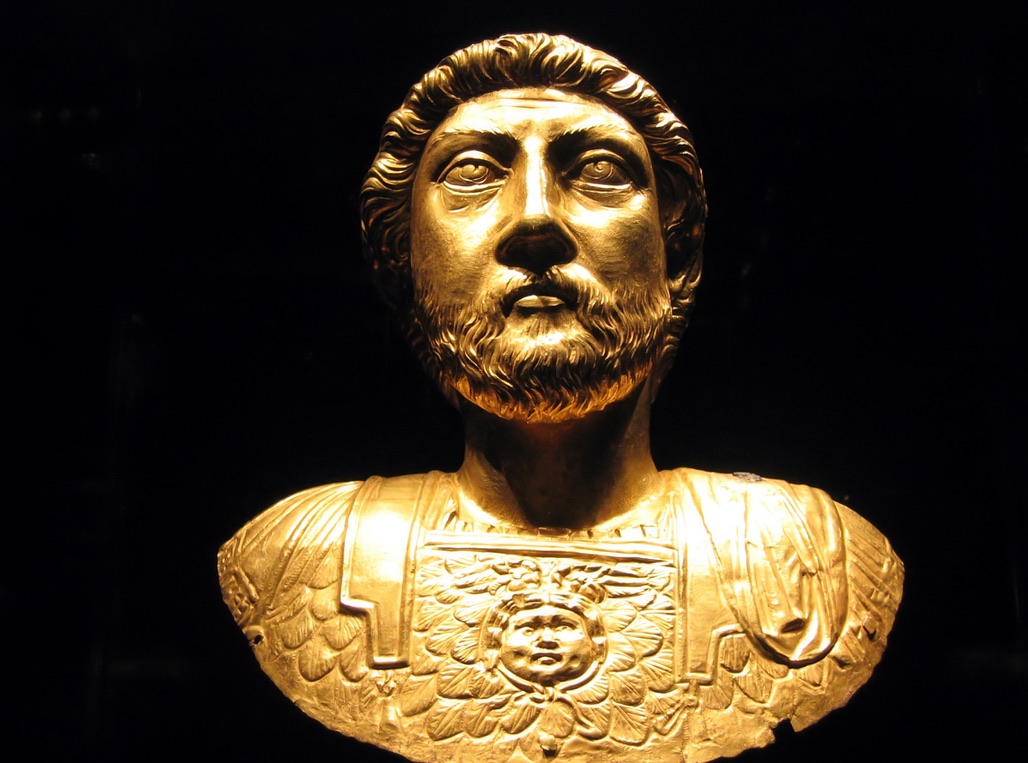
The Week in Switzerland
Dear Swiss Abroad,
Welcome to our selection of some of the biggest – and most colourful – stories in Switzerland over the past seven days.
Switzerland’s great, isn’t it? You’d have to be crazy to want to live anywhere else, right? Well, I’d agree, but it depends on who you ask and which rankings you read. We look at areas where Switzerland gets top marks and other areas where it could do a lot better.
We also discover what the Swiss in the street thinks of the European Union, how two Swiss Abroad saved some historic Swiss chalets in the Canadian Rockies, whether Zurich finally has a restaurant with three Michelin stars, and a tough dilemma facing Ukrainian men in Switzerland.
The big stories of the week

Whether it’s quality of life, universities or globalisation, Switzerland regularly excels in international rankings. Nobody, however, is perfect…
In this analysis, we examined recent global surveys to find out where Switzerland is the envy of the world – and where there’s room for improvement.
Despite recent challenges such as the Covid-19 pandemic, Switzerland recently retained the top spot for a second consecutive year in the UN Human Development Index, which focuses on global living standards. The Swiss score was boosted by high incomes and long life expectancies.
But despite the strong economy, healthy job market and low taxes, Switzerland is less popular than ever with foreign professionals, according to an international expat survey. The lack of affordable accommodation remains a headache, and many skilled workers complain about their social lives, saying they struggle to make friends in Switzerland. What’s your experience?

Switzerland remains deeply divided regarding the European Union: the public has little enthusiasm for the EU, but they consider the bilateral agreements with Brussels to be important.
A survey on the subject by the Swiss Broadcasting Corporation, SWI swissinfo.ch’s parent company, found that the majority of the almost 20,000 respondents recognised the importance of the EU for the Swiss economy. This is a rational, economic view that is spread across the political spectrum. But emotionally and personally, there’s an overwhelming feeling of distance and indifference to the European project.

Good news from the land of the loonie! Historic chalets in the Canadian Rocky Mountains once home to Swiss mountain guides have been saved from demolition by two Swiss Abroad.
Three years ago the six chalets of “Swiss Edelweiss Village” were put up for sale and last year a buyer was found. After extensive renovation, as of a few weeks ago tourists have been able to stay overnight in the heritage buildings, and the renovation and thus rescue of the village was celebrated on the 125th anniversary of the Swiss mountain guides in Canada.
In this interview, Swiss Abroad Ilona Spaar and Johann Roduit, who fought to preserve the buildings, discuss their emotions, explain the challenges and look ahead to the next chapter of the Swiss Edelweiss Village FoundationExternal link.

Swiss chefs were popping champagne corks to celebrate or commiserate on Monday when the latest Michelin restaurant guide was published: four restaurants in Switzerland had three stars, 25 had two stars and 107 had one star.
There was no change in the top three-star category (Zurich still hasn’t got a three-star restaurant, triggering a wistful article in the Neue Zürcher Zeitung, see link), but two new restaurants were awarded two stars: Colonnade, which belongs to the Mandarin Oriental Palace Hotel in Lucerne, and The Counter in Zurich’s main railway station. Six new restaurantsExternal link picked up one star.
Did you know that Switzerland has the most Michelin stars per capita in the world? (At least according to this websiteExternal link – others give the crown to Japan or Luxembourg.)

Our most read article this week was on the dilemma facing Ukrainian men in Switzerland: to stay where they are or to go to war?
Six months ago Ukraine passed a new mobilisation law. We look at how it has affected the lives of Ukrainian men in Switzerland, with first-hand accounts detailing the personal and political consequences, as well as their inner conflicts.
“I think people aren’t as afraid of the fines as they are of the criminal charges that come once the draft summons is considered served,” Maksym says. “When you’re abroad, you have two choices: either do nothing and see what happens or comply if you think you might return one day.”
Quirky Switzerland

The gold bust of Marcus Aurelius is the most precious and best-known object in Swiss archaeology. The only problem is that it might not actually be Marcus Aurelius.
The 33.5cm high treasure – 1.6kg of 24-carat gold – was found in the Swiss town of Avenches in 1939. It’s so valuable that the original is tucked away safely in a bank in Lausanne (the bust on display at the Roman Museum in Avenches is a copy).
Everyone agrees that it must be a Roman emperor, given the use of gold, but a lack of inscription has meant no one is fully sure which one. As this article explains, Marcus Aurelius seems the best bet, but a new theory makes the case for Tetricus I, the last emperor of the short-lived Gallic Empire. Who’s your sestertii on?
Photo of the week

Birds are the stars of this year’s Rendez-vous BundesplatzExternal link light show, with owls and kingfishers, bearded vultures and great spotted woodpeckers, cranes and lapwings taking over the federal parliament in Bern. The show takes place until November 23, with three performances every evening, at 7pm, 8pm and 9pm. Admission is free.
The week ahead
On Monday Switzerland’s returning Olympic and Paralympic heroes will be received and celebrated in Bern. While the eight Olympic medals were considered a “solid result”, the Paralympians excelled themselves and broke the medal record.
On Tuesday the Olympic Museum in Lausanne will hold a press conference on the 120 “iconic” objects it picked up at the Paris Olympics. We wrote an article about the museum’s shopping list in August.
Friday is the 57th anniversary of Switzerland’s first ATM. From November 1, 1967, the public could withdraw up to CHF200 a day from a machine belonging to what is now UBS in Zurich’s Bahnhofstrasse. They could make ten withdrawals before needing a new card. The world’s first cash machine had started spitting out notes in June 1967 in London.

In compliance with the JTI standards
More: SWI swissinfo.ch certified by the Journalism Trust Initiative








